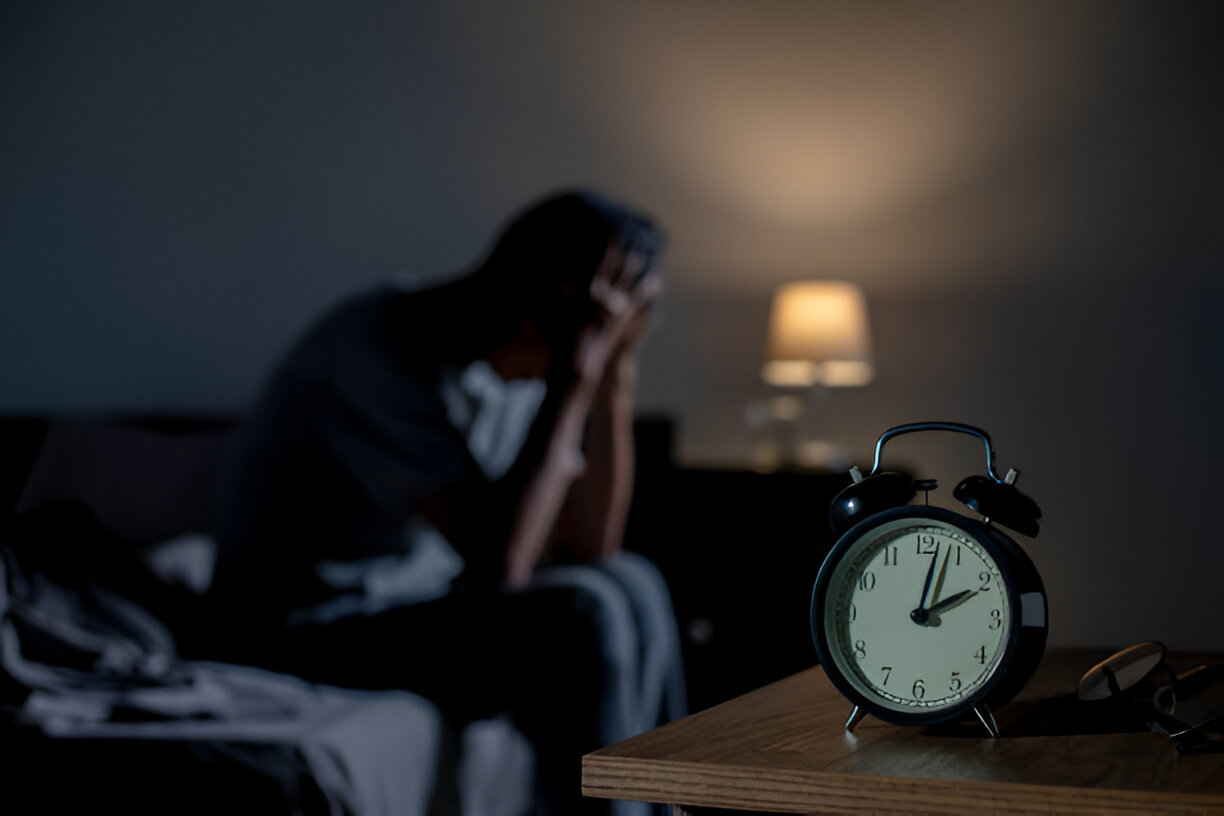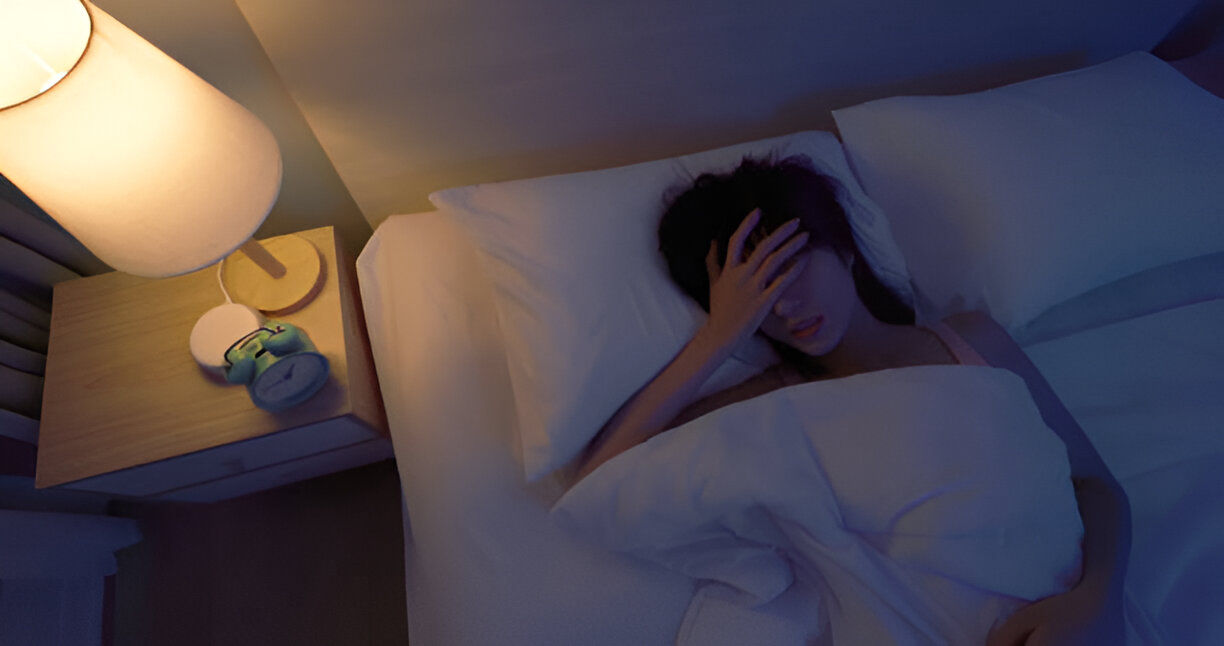Getting Better Sleep with Telehealth Support
How much sleep do you need?

Newborns (0-3 months)
14-17 hours per day.

Toddlers (1-2 years)
11 to 14 hours per day.

School-aged children (6-13 years)
9-11 hours per night.

Teenagers (14-17 years)
8-10 hours per night.

Adults (18-64 years)
7-9 hours per night.

Older adults (65+ years)
7-8 hours per night.
Meeting these guidelines is essential for physical and mental health. Sleep helps the brain process information, repairs tissues, and boosts immunity. When you’re not getting enough, your body feels the impact.
If you try to sleep but you can’t sleep this amount every day, then one of the reasons for this could be insomnia.

Recognising symptoms of Insomnia
Insomnia is one of the most common sleep disorders, with researchers estimating it affects around 1 in 10 people in Australia at any given time. Symptoms include:

Difficulty falling asleep or staying asleep.

Waking up too early and being unable to go back to sleep.

Feeling tired or not refreshed after a night’s sleep.

Trouble concentrating during the day.
In Australia, over 1.2 million people, or about 6% of the population, experience sleep disorders. This figure includes common conditions like insomnia, obstructive sleep apnea (OSA), and restless legs syndrome. The prevalence highlights just how significant sleep health is for Australians.

Difficulty falling asleep or staying asleep.

Waking up too early and being unable to go back to sleep.

Feeling tired or not refreshed after a night’s sleep.

Trouble concentrating during the day.


Why can’t you sleep?

Stress or anxiety:
Worries about work or life can keep your mind racing at night.

Lifestyle habits:
Consuming caffeine or using screens before bed can interfere with your body’s natural sleep cycle.

Medical conditions:
Sleep apnea, restless leg syndrome, or chronic pain can make it difficult to sleep.

Stress or anxiety:
Worries about work or life can keep your mind racing at night.

Lifestyle habits:
Consuming caffeine or using screens before bed can interfere with your body’s natural sleep cycle.

Medical conditions:
Sleep apnea, restless leg syndrome, or chronic pain can make it difficult to sleep.


What happens when you can’t sleep?

Reduced concentration and memory.

Mood swings and increased irritability.

Higher risk of chronic illnesses, such as heart disease, diabetes, and obesity.

A weakened immune system, making you more susceptible to infections.
How to treat Insomnia: why there is no one-size-fits-all solution

Cognitive Behavioural Therapy for Insomnia (CBT-I):
A proven technique that helps change negative thought patterns around sleep.

Medications:
Prescribed in some cases to assist with short-term sleep issues.

Lifestyle changes:
Incorporating regular exercise, maintaining a consistent sleep schedule, and reducing screen time before bed.


How Can telehealth appointments help with sleep disorders?

Quick access to care:
Speak to a qualified healthcare professional without the need to travel. Many telehealth providers offer appointments within minutes.

Personalised advice:
Receive a tailored treatment plan based on your specific symptoms and needs.

Ongoing support:
Schedule follow-ups to monitor progress, adjust treatments, and ensure optimal results.

Medication access:
Get eScripts for medications for sleep disorders, if deemed necessary. They’ll be sent directly to your phone or email.
How Can MyTelehealth Clinic Help?

Bulk-billed consultations:
Speak to a nurse practitioner at no cost if you have a Medicare card.

Same-day eScripts:
Get prescriptions for medications that can help you sleep better.

Referrals for sleep studies:
If needed, we can refer you for specialist care or diagnostic tests.

Flexible availability:
Book appointments 7 days a week, from anywhere in Australia.


Why choose telehealth for sleep issues?

Reduced waiting times:
Speak to a medical professional like a Nurse Practitioner in as little as 15 minutes.

Convenience:
Access care from the comfort of your home, without needing to travel.

Privacy:
Discuss your health concerns in a secure and confidential environment.

Accessibility:
Ideal for individuals in rural or remote areas who may struggle to reach a physical clinic.
Take control of your sleep health today

Frequently Asked Questions about Treating Sleep Problems
Further Reading
To learn more about sleep disorders and the statistics cited in this article, you can explore the following sources:
- Read more about insomnia on Healthdirect Australia.
- Deloitte Access Economics. (2021). Provides comprehensive data on the prevalence of sleep disorders in Australia available at https://www.deloitte.com/au/en/services/economics/analysis/rise-try-to-shine.html
- Table of Sleep Recommendations per age group is available at https://www.sleephealthfoundation.org.au/sleep-topics/how-much-sleep-do-you-really-need
- Adams, R. J., Appleton, S. L., Taylor, A. W., McEvoy, R. D., & Antic, N. A. (2017). Wake up Australia: The value of healthy sleep. Adelaide Institute for Sleep Health, Flinders University available at https://www.sleephealthfoundation.org.au
